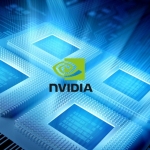Unprecedented increases in Samsung’s profit margins, especially a staggering 900 percent hike in the first quarter of 2024, has been largely attributed to their recent foray into advanced semiconductor packaging technology. This leap in profitability is due in part to Samsung’s collaboration with Nvidia, a major player in the AI (artificial intelligence) sector, for the provision of 2.5D package volume semiconductors, a sophisticated and coveted technology in the industry.
Over the years leading up to this moment, Samsung has made significant strides in semiconductor technology, a journey marked by consistent investments in research and development. Their venture into 2.5D packaging technology, known as I-Cube, has positioned them at the forefront of semiconductor innovation. This approach involves the horizontal placement of semiconductor dice, such as CPUs and GPUs, onto an interposer, providing enhanced performance and efficiency critical for AI applications. The technology parallels TSMC’s Chip-on-Wafer-on-Substrate (CoWoS), as the industry pushes forward in this competitive arena.
What is 2.5D Packaging Technology?
Samsung’s I-Cube technology is a type of 2.5D packaging that offers a sophisticated structure for semiconductors by horizontally arranging components like CPU, GPU, and memory on an interposer substrate. This configuration is fundamental in meeting the high-performance needs of AI and computing devices. By securing a deal with Nvidia, Samsung is now mass-producing these advanced packages, although outsourcing the production of HBM and GPU wafers to other specialized companies.
Why Choose Samsung for Nvidia?
A source from Samsung disclosed the company’s role in supplying 2.5D package volume to Nvidia, emphasizing mass production capabilities. Samsung’s Advanced Package Business Division will handle the production of interposers and I-Cube packages, a testament to their expertise in this innovative packaging solution. This collaboration is a critical move for Nvidia, selecting Samsung’s cutting-edge technology to bolster its AI semiconductor solutions.
How Does This Affect the Semiconductor Industry?
The implications of Samsung’s advanced packaging technology for the semiconductor industry are substantial. A scientific paper published in the Journal of Advanced Research in Microelectronics, titled “Advancements in 2.5D Semiconductor Packaging and Its Impact on High-Performance Computing,” highlights the significance of this technology. It points to the increased efficiency and performance these packages provide for AI and high-performance computing applications, underscoring the importance of Samsung’s recent deal with Nvidia within the broader context of the semiconductor industry.
Information of Use to the Reader
- 2.5D packaging boosts AI and computing device performance.
- Samsung’s collaboration with Nvidia marks a significant industry shift.
- Advanced packaging positions Samsung as a key player in semiconductor innovation.
Samsung’s strategic move to produce advanced semiconductor packaging for Nvidia reflects a broader trend in the industry towards more sophisticated and high-performance computing solutions. The decision by Nvidia to partner with Samsung for its 2.5D packaging needs underlines the electronics giant’s maturity and innovation in this space, which has proven to be a lucrative addition to their portfolio. The production of these cutting-edge semiconductors plays directly into the growing demand for advanced AI technology, promising a robust future for Samsung in the semiconductor sector.










